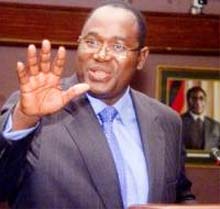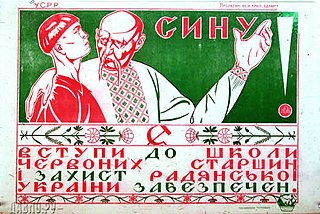Until roughly 2,000 years ago, what would become Zimbabwe was populated by ancestors of the San people. Bantu inhabitants of the region arrived and developed ceramic production in the area. A series of trading empires emerged, including the Kingdom of Mapungubwe and Kingdom of Zimbabwe. In the 1880s, the British South Africa Company began its activities in the region, leading to the colonial era in Southern Rhodesia.

Zimbabwe, officially the Republic of Zimbabwe, is a landlocked country in Southern Africa, between the Zambezi and Limpopo Rivers, bordered by South Africa to the south, Botswana to the southwest, Zambia to the north, and Mozambique to the east. The capital and largest city is Harare, and the second largest is Bulawayo.

The economy of Zimbabwe is a tertiary sector based economy, making up to 56.64% of total GDP as of 2021. Zimbabwe has a $44 billion dollar informal economy in PPP terms which translates to 64.1% of the total economy. Agriculture and mining largely contribute to exports. The economy is set to reach $66 billion by end of 2023, 88% increase in forecast from $35 billion.
Operation Murambatsvina, also officially known as Operation Restore Order, was a large-scale Zimbabwean government campaign to forcibly clear slum areas across the country. The campaign started in 2005 and according to United Nations estimates has affected at least 700,000 people directly through loss of their homes or livelihood and thus could have indirectly affected around 2.4 million people. Robert Mugabe and other government officials characterised the operation as a crackdown against illegal housing and commercial activities, and as an effort to reduce the risk of the spread of infectious disease in these areas.
Herbert Muchemwa Murerwa is a Zimbabwean politician. He served as the Finance Minister of Zimbabwe from April 1996 to July 2000, from August 2002 to February 2004, and again from 26 April 2004 to 6 February 2007. He has been Minister of Lands and Land Resettlement since February 2009.

Gideon Gono is a former Governor of the Reserve Bank of Zimbabwe (RBZ), serving from 2003 to 2013, and is the former CEO of the CBZ Bank Limited.
Munyaradzi Paul Mangwana is a Zimbabwean politician, who has previously served in the cabinet of Zimbabwe.
Zimbabwe began experiencing a period of considerable political and economic upheaval in 1999. Opposition to President Mugabe and the ZANU-PF government grew considerably after the mid-1990s in part due to worsening economic and human rights conditions. The Movement for Democratic Change (MDC) was established in September 1999 as an opposition party founded by trade unionist Morgan Tsvangirai.
Campaigning for the first round of the presidential election held in Zimbabwe on 29 March 2008 took place from February to March. There were three major candidates: President Robert Mugabe of the ruling Zimbabwe African National Union - Patriotic Front (ZANU-PF), Morgan Tsvangirai of the opposition Movement for Democratic Change, and the independent candidate Simba Makoni.

Hyperinflation in Zimbabwe is an ongoing period of currency instability in Zimbabwe which, using Cagan's definition of hyperinflation, began in February 2007. During the height of inflation from 2008 to 2009, it was difficult to measure Zimbabwe's hyperinflation because the government of Zimbabwe stopped filing official inflation statistics. However, Zimbabwe's peak month of inflation is estimated at 79.6 billion percent month-on-month, 89.7 sextillion percent year-on-year in mid-November 2008.
The second round of voting in the Zimbabwean presidential election of 2008 was held between Robert Mugabe and Morgan Tsvangirai after the first round failed to produce a 50% majority for either candidate. The election process was marred by violence against and intimidation of voters and party workers, which eventually led to the withdrawal of Tsvangirai from the poll. This left Mugabe as the winner of, effectively, a one-candidate election.

The 2008–2009 Zimbabwean political negotiations between the opposition Movement for Democratic Change, its small splinter group, the Movement for Democratic Change – Mutambara, and the ruling Zimbabwe African National Union – Patriotic Front were intended to negotiate an end to the partisan violence and human rights violations in Zimbabwe and create a framework for a power-sharing executive government between the two parties. These negotiations followed the 2008 presidential election, in which Mugabe was controversially re-elected, as well as the 2008 parliamentary election, in which the MDC won a majority in the House of Assembly.

The Zimbabwean dollar was the name of four official currencies of Zimbabwe from 1980 to 12 April 2009. During this time, it was subject to periods of extreme inflation, followed by a period of hyperinflation.

Morgan Richard Tsvangirai was a Zimbabwean politician who was Prime Minister of Zimbabwe from 2009 to 2013. He was president of the Movement for Democratic Change, and later the Movement for Democratic Change – Tsvangirai (MDC–T), and a key figure in the opposition to former president Robert Mugabe.

Indigenization is the act of making something more native; transformation of some service, idea, etc. to suit a local culture, especially through the use of more indigenous people in public administration, employment and other fields.

General elections were held in Zimbabwe on 31 July 2013. Incumbent President Robert Mugabe was re-elected, whilst his ZANU–PF party won a two-thirds majority in the National Assembly.

Paul Tangi Mhova Mkondo was a Zimbabwean nationalist, part of the first group of Gonakudzingwa restriction camp political prisoners, Pioneer Insurance Executive, Business magnate, Academic, philanthropist, conservationist, pioneer Indigenous businessman and entrepreneur.

General elections were held in Zimbabwe on 29 March 2008 to elect the President and Parliament. Because of Zimbabwe's dire economic situation, the elections were expected to provide incumbent President Robert Mugabe with his toughest electoral challenge to date. Mugabe's opponents were critical of the handling of the electoral process, and the government was accused of planning to rig the election. Human Rights Watch said that the election was likely to be "deeply flawed."
Patrick Zhuwao is a Zimbabwean businessman, farmer, and politician. He served as minister of public service, labour and social welfare between October and November 2017. He was expelled from the ruling ZANU–PF party during the 2017 Zimbabwean coup d'état.
Jason Zhuwao is a Zimbabwean politician. He is a former ZANU–PF Director for Youth Affairs and son of former Minister of Youth Indigenisation and Economic Empowerment Patrick Zhuwao and nephew to former Zimbabwe President Robert Mugabe. Zhuwao served under his father's ministry youth advisory board and held different government and ZANU PF portfolios.